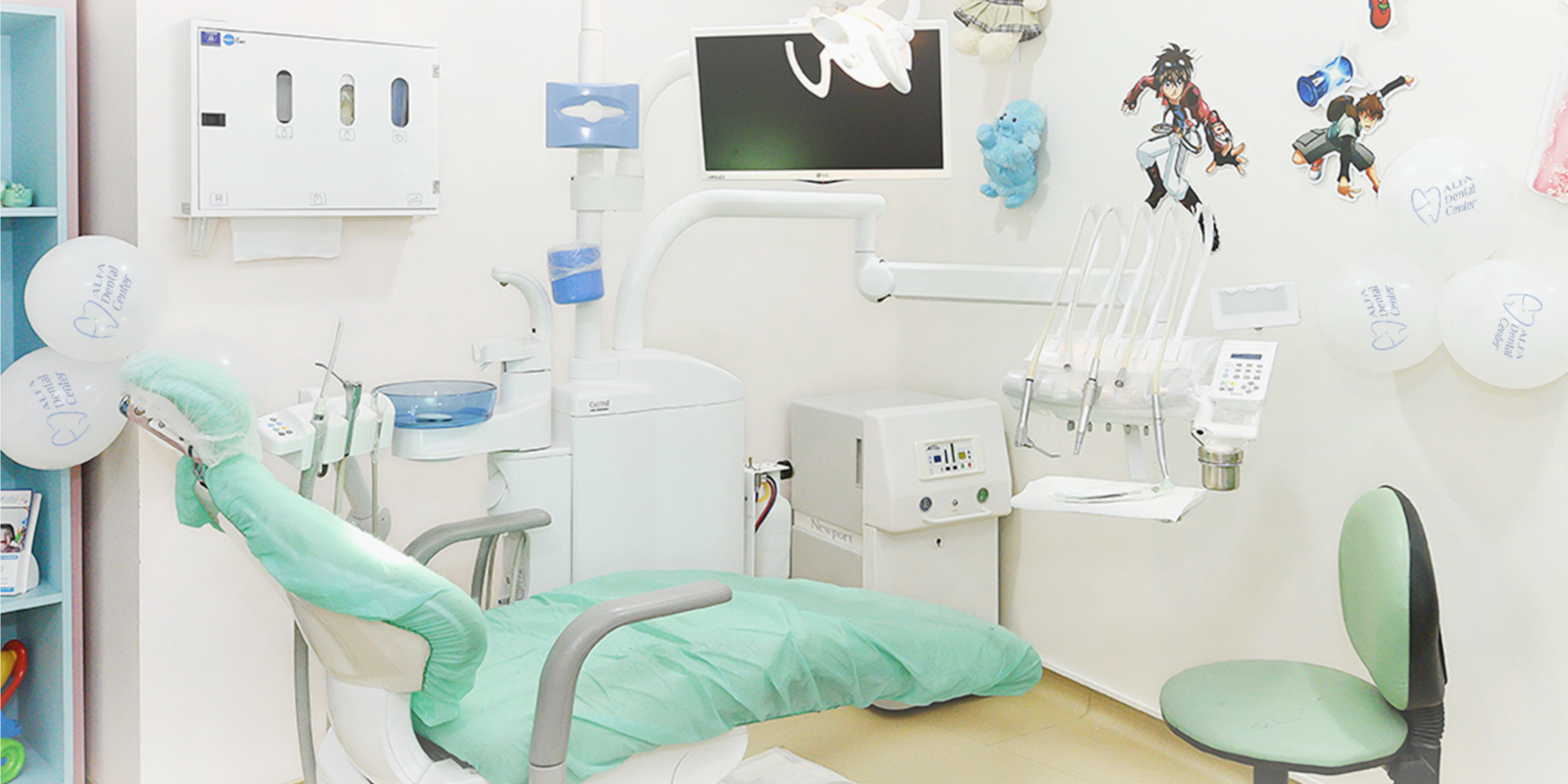Pedodontics
“Pedodontics intervenes from birth to adolescence”.
Pedodontics is a dental specialty for children. Pedodontics covers caries care on milk teeth and permanent teeth, pedodontics includes the treatment of frequent oral trauma, especially in children. It also includes learning about dental hygiene, the treatment of pathologies associated with pedodontics and the prevention.
In the past, a cavity on a milk tooth was systematically proceeded to the extraction. Today, the existence of pedodontics, a specialty of odontology for children, makes it possible to treat and preserve (when possible) temporary teeth to keep space for permanent teeth.
The milk teeth remain on the dental arch of the child from the age of 6 months until the age of 12 years that is why pedodontics is a dental specialty which has an important role in the prevention and early learning of oral hygiene to children.
Why should a child see a pediatric dentist?
- Pedodontics aims to make children aware of their oral health from an early age.
- Like adults, children’s teeth are very quickly the target of bacteria and dental plaque.
- Pedodontics intervenes on the various dental infections likely to affect children. But the earlier we act, the more we can treat our teeth.
The main dental pathologies that affect children
Tooth Decay
Tooth decay, very common in children and it develops very quickly because of the child’s oral environment which is often affected by baby bottle tooth decay. At the origin of milk and fruit juices consumed by toddlers small during the day and evening.
To prevent their appearance and protect the dentition, pedodontics will apply a suitable resin to the molars which will prevent the proliferation of bacteria and the accumulation of dental plaque. This will in no way hinder the child in using his teeth to eat or open his mouth.
Dental abscesses
Abscesses that occur when the first teeth begin to grow. Care should be taken to ensure that the child does not feel any discomfort or pain, and that there are no major infections forming.
These pathologies are those for which dentists intervene most frequently. And giving him advice on the maintenance of his teeth.
Similar Cases


